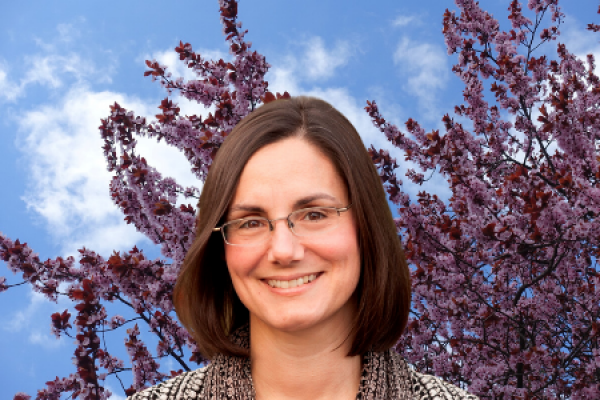
Q&A with Technical Assistance Division Lead Christina Kasprzak, MA
Christina Kasprzak, MA, is a senior technical assistance specialist at the UNC Frank Porter Graham Child Development Institute and leads the Technical Assistance Division. She is the director of the Trohanis Technical Assistance (TA) Projects, co-director of the Early Childhood TA (ECTA) Center, and is principal investigator on the FPG subcontract for the Center for Early Childhood IDEA Data Systems (DaSy).
What is Technical Assistance (TA) and what is the focus of the TA Division at FPG?
Technical Assistance (TA) is a collaborative and coordinated approach to facilitating change that focuses on building the capacity of individuals, organizations, and systems, and ultimately, achieving agreed-upon outcomes. The TA Division at FPG is focused on building state and local system capacity to implement evidence-based practices (EBPs) and, ultimately, ensure optimal outcomes, for the most vulnerable young children and their families – including those with, or at risk for, disabilities, who have experienced trauma, and who live in poverty.
Our TA specialists focus on:
- Equity: We collaborate with national, state, and local entities to address issues of equity in health and education. We actively work toward creating systems and services that include children at risk for delays and with disabilities in their communities, schools, homes, and other environments.
- Systems: We understand the essential role of state and local infrastructure for ensuring that high-quality services are delivered to support children and families. Our technical assistance strategies address infrastructure components to ensure that leadership and policies, personnel, funding, standards, accountability, and data systems are aligned.
- Outcomes: We focus on building high-quality systems and services that result in positive outcomes for infants, toddlers, and young children at risk of delays or with disabilities, and their families. We understand EBPs in early childhood and support administrators, trainers, faculty, teachers, and providers to implement those practices that help children reach their potential.
- Translation of research to practice: We understand and implement effective TA that is based on research and evaluation. We provide differentiated TA that incorporates adult learning principles, systems change principles, implementation science, improvement science, and strategies from evaluation and data-driven decision making.
What are some of the main projects the division is working on right now?
- The Early Childhood Technical Assistance Center (ECTA) supports Part C and Section 619 coordinators and staff to implement high-quality early intervention/early childhood special education systems and increase implementation of EBPs to improve outcomes for children with disabilities and their families.
- STEM Innovation for Inclusion in Early Education Center (STEMIE) aims to develop and enhance knowledge of the supports necessary to improve access and participation in STEM for young children with disabilities.
- The North Carolina Early Learning Network (NC-ELN) provides early learning communities with professional development and technical assistance to support preschool children with disabilities and their families in NC through the vision of the North Carolina Department of Public Instruction’s Office of Early Learning.
How does the Technical Assistance Division serve the greater FPG mission of advancing knowledge to transform children's lives?
The TA Division supports the greater FPG mission by building knowledge around creating high-quality systems that result in positive outcomes for young children and their families. The TA Division incorporates what we know from research, implementation science, and improvement science to support the field of early care and education. In addition, our staff develops new knowledge for the field in areas such as components of a high-quality system, STEM in early childhood special education, and indicators of high-quality inclusion.
What is your vision for the division, looking forward?
For more than 40 years, FPG has been the hub of expertise in early childhood TA. My vision is to maintain this expertise and explore ways to make new advancements that respond to the growing needs in health and education of young children, especially children with, or at risk of, delays and disabilities. I am very focused on efforts to build new knowledge and implement strategies around diversity, inclusion, and equity. This includes internal work related to hiring and retaining racially diverse staff and building the competencies of current staff related to racial diversity and equity. In addition, this includes external work that addresses inequity in access to services and disparate outcomes for children of color and their families. I am also passionate about building early childhood education as a profession. This includes contributing to efforts that define the profession, addressing issues of compensation, and establishing necessary systems infrastructure. We are working to help attract new students at the bachelor's, master's, and doctoral levels. We are building capacity of new teachers, providers, and administrators as leaders, and we are mentoring and supporting new TA Specialists.
